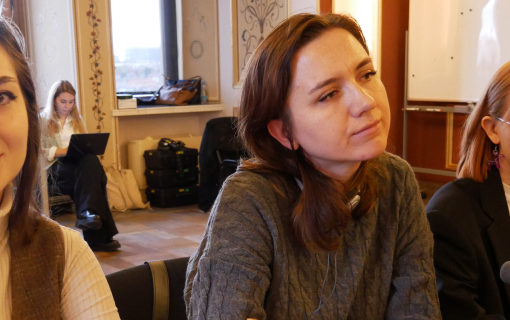Haiti’s National Gender and Election Strategy
By Jessica Huber, Senior Gender Specialist
As Haiti prepares to hold national elections on August 9, 2015, the Provisional Electoral Council (CEP), Haiti’s provisional election management body (EMB), has made gender equality and women’s empowerment a priority. On July 13, 2015, the CEP launched Haiti’s National Gender and Election Strategy to promote women’s participation in elections and provide a framework to coordinate the actions of all stakeholders. With support from the International Foundation for Electoral Systems (IFES) Haiti, the CEP sought input from stakeholders across all of regions of the country, including women’s groups, national and local government officials, the judiciary, police and journalists. With this release, the CEP is making it clear that gender equality is integral to the electoral process.
The goal of the National Gender and Election Strategy is to reach more women as voters, candidates, CEP staff and civil society members. Support on Election Day is important, but the strategy focuses on all phases of the electoral process, whether that’s on August 9 or in the lead up to the next national elections. This goal is articulated in seven specific objectives, as follows:
- Legal Framework: Adopting an inclusive legal framework, in accordance with international and national law, including the Constitution, which establishes a minimum 30 percent gender quota at all levels of public administration.
- Election Management: Establishing a roadmap for an EMB to engage and promote men and women’s participation in the electoral process.
- Voting: Promoting the active participation of women as voters in the electoral process.
- Decision-making: Increasing the presence of women in the electoral and political decision-making processes.
- Political parties: Integrating gender equality in political parties, in order to guarantee the access of men and women to their decision-making structures, as well as to introduce measures to promote gender equality in their electoral programs.
- Media: Promoting pluralistic and inclusive media coverage of the electoral process, which takes into account the interests of women voters and remains respectful towards women candidates.
- Violence Against Women: Promoting a peaceful environment and developing conflict prevention mechanisms, which take into account both public and private violence against women in elections.
Similar examples of EMBs working with ministries and IFES to integrate gender equality into their plans and actions throughout the electoral process can be found in Nigeria, Nepal, the Philippines, the Maldives, Myanmar, Georgia, Kenya, Tunisia, Kosovo, Guatemala, Yemen and Libya, among others.
IFES’s gender equality and women’s empowerment programming promotes men and women’s equitable participation in electoral and political processes. IFES works with countries, like Haiti, well in advance of elections on foundational democracy building by:

- Providing technical leadership to integrate gender equality and women’s empowerment throughout the electoral cycle, and,
- Partnering with local women’s groups and leaders to ensure programming is effective and has a lasting impact.
While the letter of the law is clear in many international protocols of which Haiti is a party to, as well as in its own Constitution decreeing gender equality, implementation will be a challenge. Indeed, while the development and launching of the National Gender and Elections Strategy is an incredible accomplishment, the real work is just beginning. This plan cannot be placed on a shelf, as more important things, such as the imminent elections overtake it. The CEP and those who worked with it to bring this strategy to bare must develop an action plan with tangible short- and long-term goals and a timeline that gives specific deadlines and gets to work right away. Most importantly, those charged with leading this process must be empowered, supported and held accountable for progress and shortfalls. This work cannot be left to just a few women alone.









